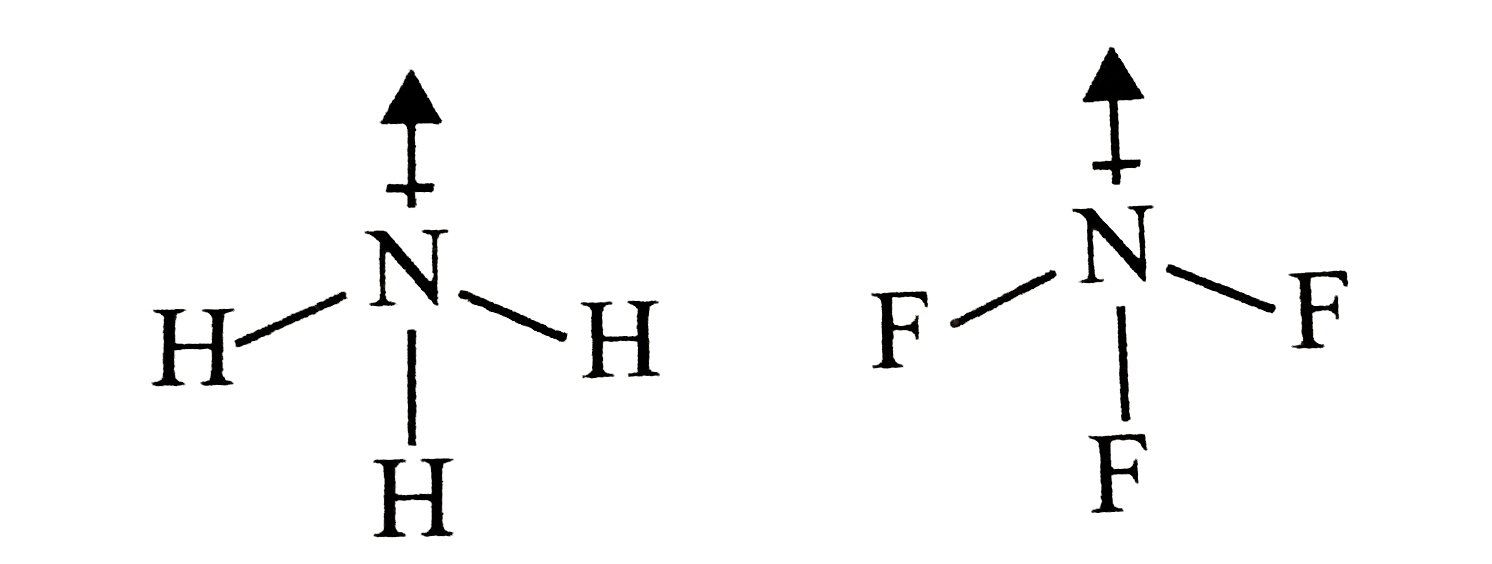Although F is more electronegative than H, the resultant dipole moment of NH3 is much more than that of NF3. It can be explained as

A
the lone pair of nitrogen opposes the dipole moment of NF3 while it is added to the dipole monet of NH3
B
all the dipoles of NF3 are in same direction
C
all the dipoles of NH3 are in opposite direction
D
NH3 has a regular geometry while NF3 has irregular geometry which makes dipole moment of NH3 more than NF3.
Video Solution
Text Solution
The correct Answer is:A
|
Topper's Solved these Questions
- CHEMICAL BONDING & MOLECULAR STRUCTUREBOOK - NCERT FINGERTPS ENGLISHCHAPTER - CHEMICAL BONDING & MOLECULAR STRUCTUREEXERCISE - HIGHER ORDER THINKING SKILLS
10 Videos
- CHEMICAL BONDING & MOLECULAR STRUCTUREBOOK - NCERT FINGERTPS ENGLISHCHAPTER - CHEMICAL BONDING & MOLECULAR STRUCTUREEXERCISE - EXEMPLAR PROBLEMS
14 Videos
- CLASSIFICATION OF ELEMENTS AND PERIODICITY BOOK - NCERT FINGERTPS ENGLISHCHAPTER - CLASSIFICATION OF ELEMENTS AND PERIODICITY EXERCISE - Assertion And Reason
15 Videos
Similar Questions
Knowledge Check
The dipole moment of NF3 is much less as compared to that of NH3 because
A1. the size of N atom is much less than that of H atomB2. F atom is more electronegative than N atom, whereas H atom is less electronegative than N atomC3. unshared electron pair is not present inNF3D4. number of lone pairs in NF3 is much greater than in NH3.The dipoles moment of NF3 is less than NH3 because
A4.90×10−30Cmand0.80×10−30CmB0.80×10−30Cmand4.90×10−30CmC4.90×10−30Cmand4.90×10−30CmD0.80×10−30Cmand0.80×10−30CmAssertion : Dipole moment of NH3 is greater than that of NF3.
Reason : Nitrogen is more electronegative than fluorine.Aboth assertion and reason are true and reason is the correct explanation of assertion.Bboth assertion and reason are true but reason in not the correct explanation of assertion.Cassertion is true but reason is false.Dboth assertion and reason are false.
The dipole moment of CH3F is greater than that of CH3Cl.
View SolutionExplain why :
dipole moment of H2O is much higher than that of H2S.
View SolutionThe dipole moment of CH3OH is_____than that of CH3SH .
View SolutionFluorine is more electronegative than chlorine. Is the statement true ?
View SolutionThe dipole moment of H2O2 is more than that of H2O but H2O2 is not a good solvent because :
View Solution

